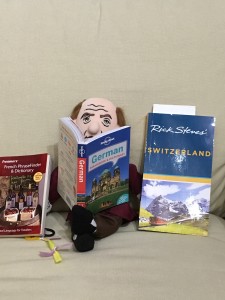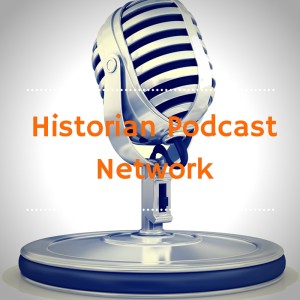 What if historians owned and operated a media network?
How much impact could they make with the ability to create wide public awareness about their research?
What if historians owned and operated a media network?
How much impact could they make with the ability to create wide public awareness about their research?
Last week, I attended Podfest, one of the two major conferences about podcasting in the United States. I used the opportunity to share ideas, meet with friends, and help new podcasters launch their shows.
As I shared my ideas, four veteran podcasters told me they had an idea for me too: Think BIGGER.
They suggested that I parlay the success of Ben Franklin's World into a history podcast network.
Truthfully, I had this idea last year, but I became busy and I haven't thought about it for awhile. Now the podcasters' suggestions have me thinking about it again.
In this post, you will discover what podcast networks are, the benefits they offer, and an overview for how to start one.
Podcast Networks
A podcast network is a group or company that produces, promotes, sells ad space on, and manages more than one podcast.
Some networks, like Gimlet Media and Radiotopia, own all of their own shows. Other networks, like Panoply, own some shows and manage the distribution, promotion, and ad sales for other shows they invited to join their network.
Network Benefits
Podcast networks offer many benefits, although not all networks offer all benefits.
1. Consistent content: Finding high-quality content can be difficult. Podcast networks offer listeners and advertisers an easy way to find shows with similar quality and/or topic(s) to the shows they already like.
Many networks offer programs that have a similar genre or topic. Gimlet Media produces a variety of storytelling podcasts. Radiotopia offers both storytelling and editorial shows.
2. Training and Editorial Assistance: Networks offer show hosts training and editorial guidance.
Networks that own all of their shows have producers who help hosts come up with show ideas, strategies for how to implement those ideas, and editorial assistance when it comes time to edit the show together. They also ensure that a consistent group of audio engineers edit and master episodes.
Networks that own some shows, but not all shows, may offer their members all or some of the above services.
3. Promotion: Word-of-mouth recommendations provide podcasts with the best avenue for finding new listeners.
Networks find new listeners for their programs by promoting member shows across their network. This promotion generates lots of word-of-mouth support that can quickly expand listenership for new programs because listeners are more likely to check out podcasts that belong to the same network. Listeners like consistent quality.
4. Bulk and Centralized Ad Sales: Advertisers want to invest in ads that generate awareness and sales. They want to work with companies (or networks) that have a track record of producing high-quality, consistently-released content that their target audience consumes.
Networks offer advertisers stability and opportunities to be heard by members of their target audience across multiple shows.
Why a Historian Operated Network
History is one of the most popular podcast genres. The most popular history podcast (and one of the most popular podcasts) is Dan Carlin's Hardcore History. New episodes of Carlin's podcast receive approximately 3 million downloads within the first month of availability.
The present landscape of history podcasts reflects that journalists and amateur historians, like Carlin, produce most of the podcasts about history. Although several of these podcasts are good, most reflect a lack of professional historical training.
A podcast network operated by historians would offer historians the ability to both professionalize and participate in a popular genre of a steadily growing media. The fact that such a network could tout podcasts produced by professional historians would provide its member shows with instant credibility.
Another advantage for historians: the network could be built into a sizable media outlet historians could always use and control. No more waiting for NPR, The New York Times, or the History Channel to come calling. In fact, a podcast network would increase the visibility of historians and their important work. This in turn would increase the frequency that popular media outlets would contact us.
Brief Overview for How to Start a Podcast Network
The first step for creating a historian-driven podcast network is to settle on an approach.
Will the network produce and own all member podcasts? Will it own some and invite other hosts to participate? Will it offer shows about any historical topic? Or will it offer shows related to a certain era, geographic area, or subfield?
The network would need a name. This name would need a domain name for its online presence, incorporation as a business entity, and trademark protection.
With legalities in place, the network would need to produce or find its first show(s). The selection/production of this show(s) is incredibly important because it will establish the reputation of the network with listeners and help the network gain an audience.
Once the network felt secure in the production of its first show it could create or add member shows. The addition and creation of member shows would likely be dependent upon the first show generating revenue from advertisements and affiliate opportunities.
Will I Start A Historian-Run Podcast Network?
Will I follow the podcasters’ advice and use Ben Franklin’s World to start a historian-driven podcast network?
I don't know.
I have the knowledge and a well-established first show. I also know I could help historians learn how to podcast and produce great, compelling content.
But, starting a network would require me to place my current research and publication plans largely on hold for an unknown period of time. Sure, I could create opportunities to blend my research agenda with that of the network, but it may take several years before I could really go back into the archives and work on a book-length project.
There is also the fact that starting a network would multiply the business/administrative aspects of producing a podcast that I don't always enjoy.
Network creators are both the face of the network and its "janitor." I would be responsible for finding and training new talent, creating or finding new shows, managing network hosts and show edits, show promotion, finding and securing advertising partners, and solving problems that arise.
With that said, I love the idea of building something that would allow historians to expand the reach and impact of their important research. And I think I could find a partner or two to assist with the administrative work.
Now is also the perfect time to start a network.
Historians are embracing the history communications movement and podcast networks and digital content providers are beginning to bring order to the "Wild West" atmosphere of digital media. Starting a network now will be easier than it will be two years from now. And starting now would give historians the opportunity to help shape the order content providers and networks are applying to the digital media landscape.
Over the last six months or so, I have felt like I am standing at a crossroads with my work, but I couldn’t articulate why. The idea of starting a network has forced me to figure out why I have this feeling. It’s because I need to make a choice about the type of scholarship I want to produce over the long term.
Do I want to be a historian who dabbles in digital media and researches and writes books and articles that contribute to the historiography?
Or do I want to be a historian who uses their training to shape the way historians utilize new media to present their scholarship to the world?
I have been podcasting long enough, and I see the landscape well enough, to know that I have to make this choice and I must make it soon. If I wait too long, I will miss this opportune moment.
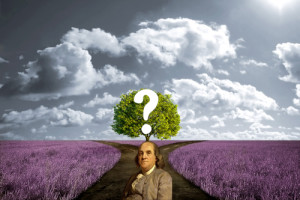

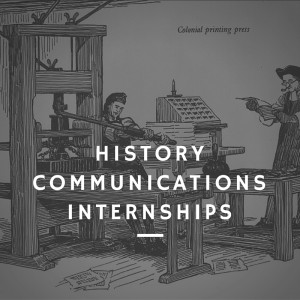 Of late, several professors have inquired whether I offer, or have considered offering, semester-long internships at
Of late, several professors have inquired whether I offer, or have considered offering, semester-long internships at 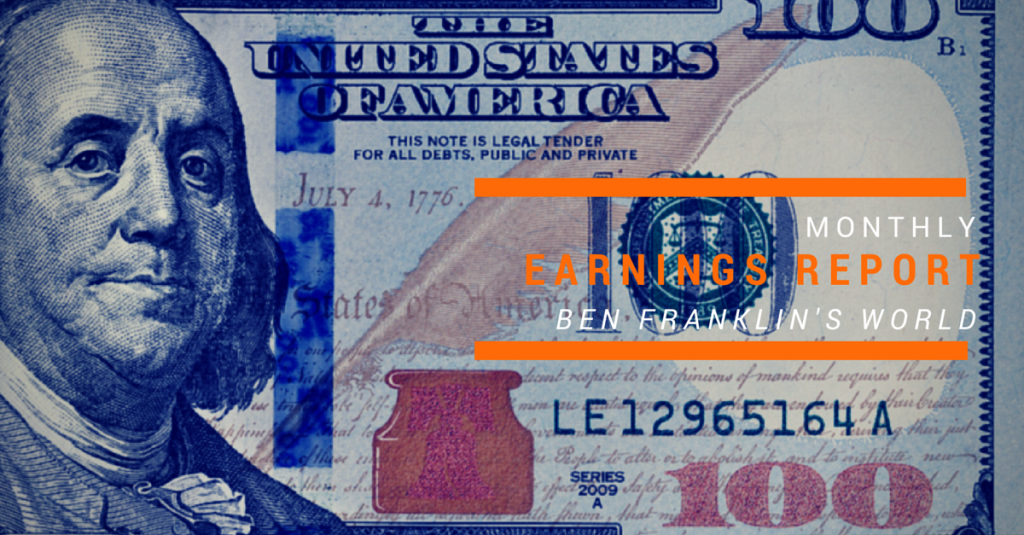
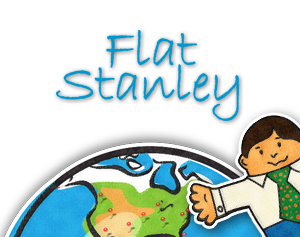 Do you know Flat Stanley?
Do you know Flat Stanley?
 I am not sure how it happened, but January may have been the only month when I don’t travel in 2016.
I am not sure how it happened, but January may have been the only month when I don’t travel in 2016.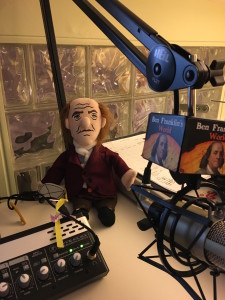 I have friends and family who find my enthusiasm for early American history a bit eccentric. They send me bobbleheads and tell me about quirky items like the
I have friends and family who find my enthusiasm for early American history a bit eccentric. They send me bobbleheads and tell me about quirky items like the 